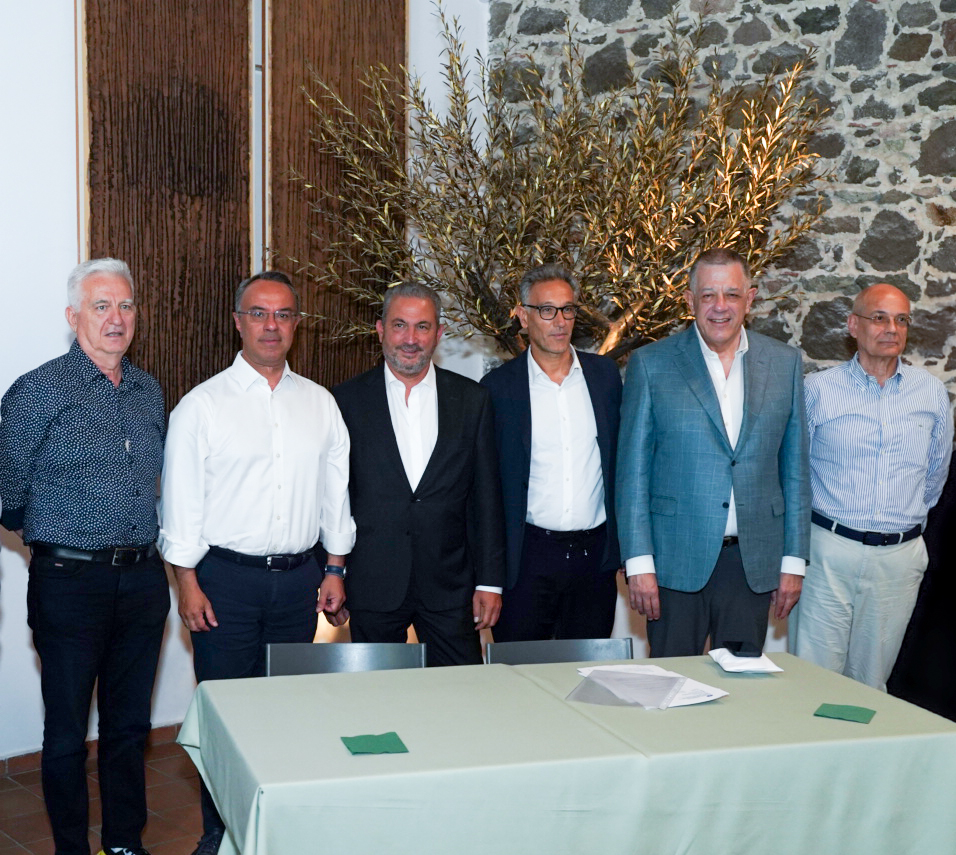
AKTOR, a member of the Intrakat Group, today signed a contract with the Ministry of Infrastructure and Transport for the major project "Construction of the Tsiknias Dam in Lesvos, Water Treatment Facilities, and Networks," with a budget of €98 million.
The project promises to revitalise water management on the island, offering its residents and visitors greater environmental sustainability and security of supply of clean water for the 21st century.
The contract was signed at a special event in Mytilene by Intrakat Group's General Manager, Mr. Anastasios Aranitis, in the presence of the political leadership of the Ministry of Infrastructure and Transport. In his address, the Chairman of the Board and CEO of AKTOR, Mr. Alexandros Exarchou, promised a timely and high-quality delivery of the project, while stating that this is a particularly timely project that shows the path that our infrastructure must take in the era of climate change and the emergence of water scarcity in various regions of the country. "This major project could not have come at a better time," he said, noting that the technical world has an important role to play in building resilience to the challenges of climate change in the years ahead.
The contract for the project "Construction of the Tsiknia Dam, Water Treatment Facilities, and Networks" includes a series of technical works for the collection, treatment, and transport of the necessary quantities of water. In particular, the physical scope of the project includes 1) the construction of the Tsiknias Dam and its accompanying works; 2) the Water Treatment Facilities (WTP); 3) the construction of a central pumping station and reservoirs; and 4) the construction of the aqueduct pipelines.
This is a highly complex hydraulic project that will be constructed in a special geological environment and implemented with full respect for the environment. Parts of the project are included in NATURA 2000 areas, while others are in proximity to archaeological monuments.






